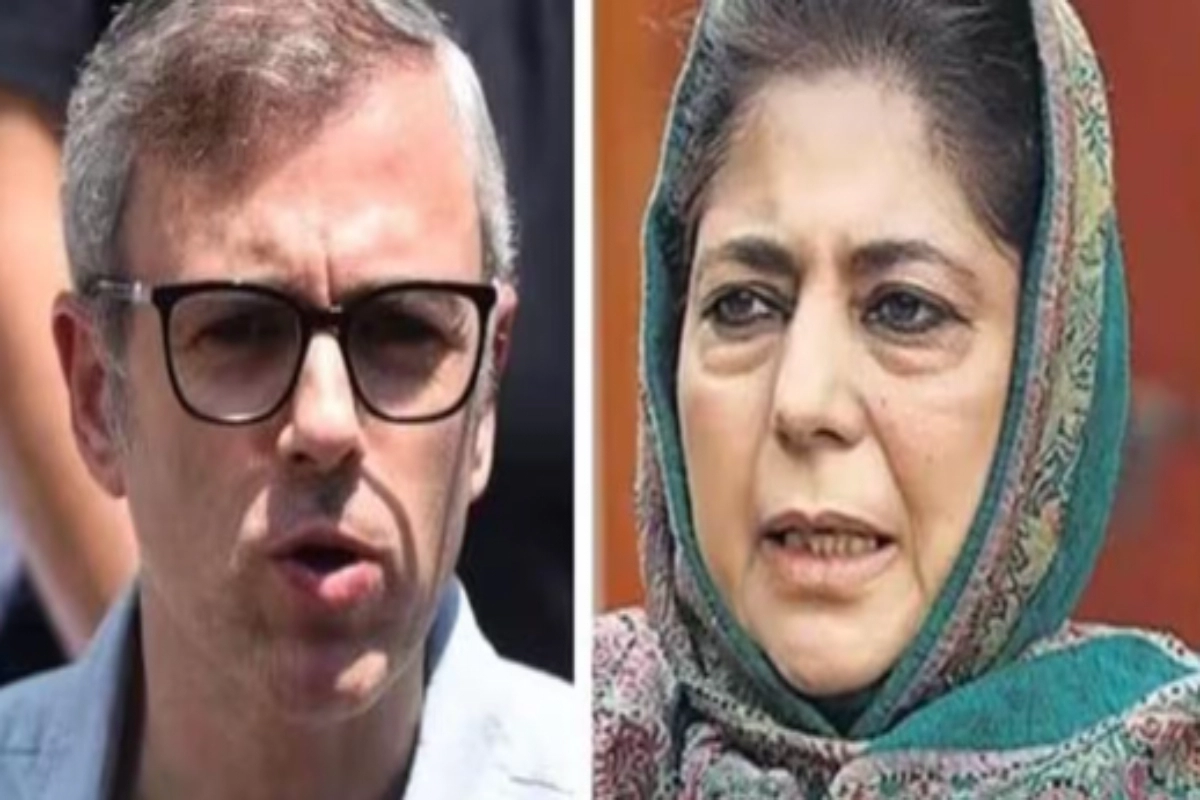Hassan Nasrallah: The latest attack on Hezbollah bases by the Israel army in Lebanon is a sharp escalation to the raging conflict going on in the region. The operation that led to the death of Hezbollah leader Hassan Nasrallah and others shocked the globe and made the winds chatter from the Middle East well into the political landscape of Jammu and Kashmir, India.
Mehbooba Mufti’s Solidarity with Lebanon and Gaza
A significant reaction is that from Mehbooba Mufti, who heads the People’s Democratic Party (PDP) and was the Chief Minister of Jammu and Kashmir, who proceeded to cancel her election campaign that she had planned to hold on Sunday. She was quoted as taking to social media platform X and stating: “Expressed my solidarity with the people of Lebanon and Gaza, especially condemning the loss of Hassan Nasrallah. I am canceling my campaign to show solidarity with the martyrs of Lebanon and Gaza.”.
She continued, “We stand with the people of Palestine and Lebanon in protest against this grief and attack.” She continued, “We know that humanitarian issues are very important, and we cannot forget the trauma which has been in the region for a long time.
Assessing the Impact of Leadership Loss on Hezbollah
Hassan Nasrallah and his daughter Zainab, along with several Hezbollah leaders, will be remembered as a turning point in the battle between Israel and Hezbollah. According to the Israeli military, this operation would take away leadership that has been a long-term threat to their security. The killing of Nasrallah with six others-most of whom were fighters like Ali Karaki, Muhammad Ali Ismail, and Hussain Ahmed Ismail-emphasizes the drastic action by Israel to assert its dominance. The Israeli military opined that Nasrallah’s killing would mark the end of the serious threat that he was causing on the international arena.
Omar Abdullah’s Measured Response to Mufti’s Campaign Cancellation
JKNC deputy president Omar Abdullah spoke on Mufti’s cancellation of his campaign, but he did this in a controlled manner. He avoided commenting outright but reiterated that his party has always been opposed to the application of force by Israel. He said, “We have always opposed the bombing and use of force by Israel for the last one year. We have repeatedly demanded that it should be stopped. Whether it is Gaza, Lebanon, or anywhere else, the killing of innocent people should stop.” His comments bring into focus the urgent concerns about civilian causalities and humanitarian issues associated with conflicts in which war is waged.
Ayatollah Khamenei’s Condemnation
Beyond the immediate military spillovers, the implications of Nasrallah’s assassination are far-reaching. Iran’s Supreme Leader, Ayatollah Ali Khamenei, reacted to the attacks in a statement where he summed up the assault on unarmed Lebanese citizens to be an affirmation of the “barbaric nature” of the Israeli forces. He referred to the attacks as an evidence of the myopic policies of the Israelis by challenging Muslims worldwide to present a united front for the side of Lebanon and Hezbollah. His statements do not cause further divisions in the Muslim world but rather work to unite his community against the oppressive regimes he perceives.
The Regional Ripple Effect
It all looks pretty insecure as momentum builds throughout the region with greater violence and retaliation due on the cards. Through such an appeal, Abdullah makes a call to the government of India, led by Prime Minister Modi, to maneuver Israel towards peace. What comes out is the growing unease with respect to how spillover effects from the world’s newest war were going to affect local politics in places like Jammu and Kashmir, reminding the world that the effect of war rings far beyond its borders.
The assassination of Hassan Nasrallah only proves to shift power around within Hezbollah and the Middle Eastern geopolitical map but also acts as an instigator in political action and emotion inside areas such as Jammu and Kashmir, where leaders react to the plight of those being affected by their wars.
